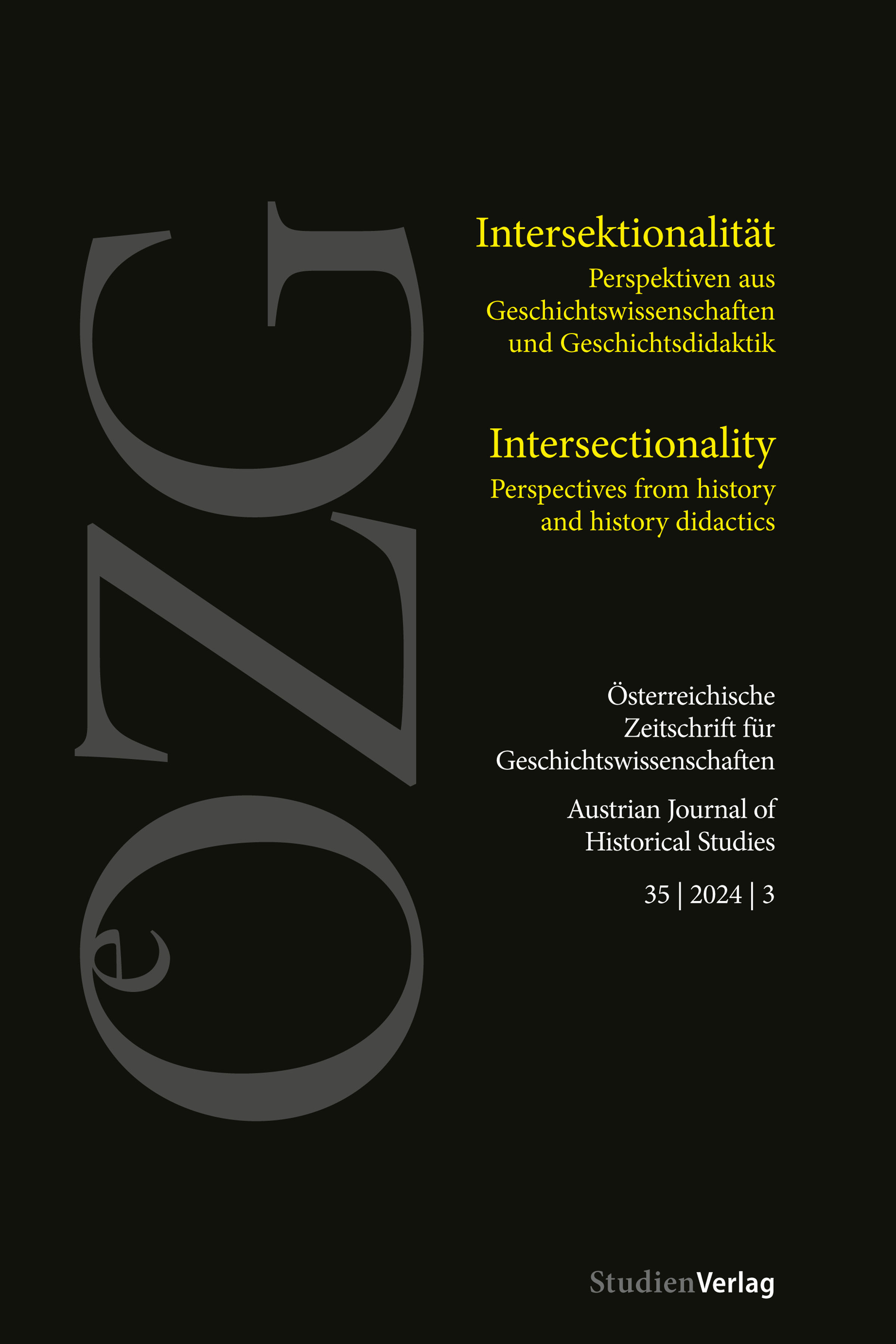Intersectional History of Social Work in University Didactics
Autobiographical Sources of Female Welfare Workers from the Vienna Youth Office in the 1930s
DOI:
https://doi.org/10.25365/oezg-2024-35-3-4Keywords:
social work history, autobiographical research, intersectionality, didactics of history, youth welfareAbstract
The historiography of social work receives significant impulses from intersectional perspectives and raises new questions that also concern the didactics of history in higher education. A teaching concept was implemented in the context of a course on the history of social work. The profession for women, which emerged in Austria in the 1920s, established itself primarily in the Youth Welfare Office. Two sources, the personal testimonies of Jewish female social workers who had to flee in the 1930s, provide an insight into the everyday life of this institution of the City of Vienna. Together with social work students, these sources were analysed using theories of intersectionality on a structural, symbolic, and individual level. In this way, complex discriminations and privileges in the institution’s mission between help and control were reconstructed.
Downloads
Published
How to Cite
Issue
Section
License
Copyright (c) 2024 Austrian Journal of Historical Studies

This work is licensed under a Creative Commons Attribution 4.0 International License.


